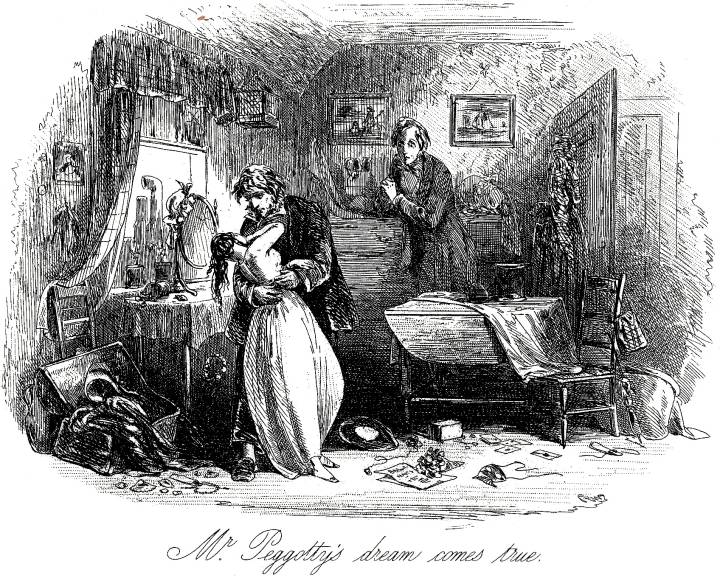Spiritual Sunday
The experience of listening to David Copperfield as I drove back from Sewanee two weeks ago continues to resonate with me. Looking at today’s Episcopalian lectionary reading, I’m struck by how important Jesus’ parable about the lost sheep (Luke 15: 1-7) was for Charles Dickens.
As a reminder, here’s the parable:
All the tax collectors and sinners were coming near to listen to Jesus. And the Pharisees and the scribes were grumbling and saying, “This fellow welcomes sinners and eats with them.”
So he told them this parable: “Which one of you, having a hundred sheep and losing one of them, does not leave the ninety-nine in the wilderness and go after the one that is lost until he finds it? When he has found it, he lays it on his shoulders and rejoices. And when he comes home, he calls together his friends and neighbors, saying to them, `Rejoice with me, for I have found my sheep that was lost.’ Just so, I tell you, there will be more joy in heaven over one sinner who repents than over ninety-nine righteous persons who need no repentance.
In David Copperfield, there are a couple of lost sheep. One of them is Martha, a fallen woman who leaves Yarmouth for London with the help of “Little Emily,” Mr. Peggotty’s niece. And then there is Emily herself, who runs off with Steerforth and is then abandoned by him. Martha redeems herself in her selfless search for Emily.
Finally, there is the good shepherd, Mr. Peggotty, who proceeds to wander throughout Europe to find his niece and who finally discovers her, insensible, after she has just been upbraided by Steerforth’s ice-hearted cousin. The contrast between the two women is pure Dickens, who takes his Biblical lessons and turns them into melodrama. As we learn from the novel’s conclusion, the self-righteous cousin lives her self-created hell for the rest of her days while Emily and Martha live a rich life of service in Australia.
Here’s the moment where Peggotty, after his long and arduous search, finds Emily:
The foot upon the stairs came nearer–nearer–passed her [Steerforth’s cousin] as she went down–rushed into the room!
‘Uncle!’
A fearful cry followed the word. I paused a moment, and looking in, saw him supporting her insensible figure in his arms. He gazed for a few seconds in the face; then stooped to kiss it–oh, how tenderly!—and drew a handkerchief before it.
‘Mas’r Davy,’ he said, in a low tremulous voice, when it was covered, ‘I thank my Heav’nly Father as my dream’s come true! I thank Him hearty for having guided of me, in His own ways, to my darling!’
With those words he took her up in his arms; and, with the veiled face lying on his bosom, and addressed towards his own, carried her, motionless and unconscious, down the stairs.
No one pulls on the heartstrings quite like Dickens.
